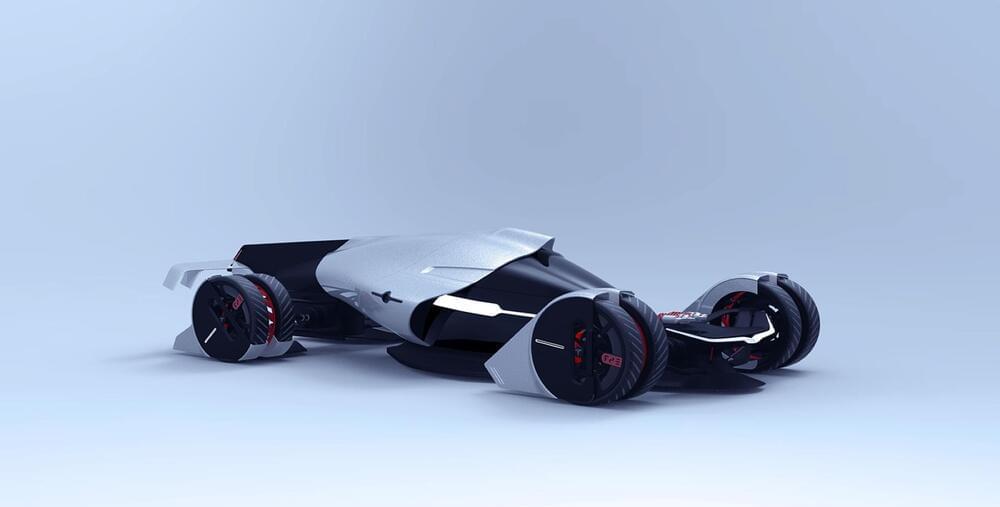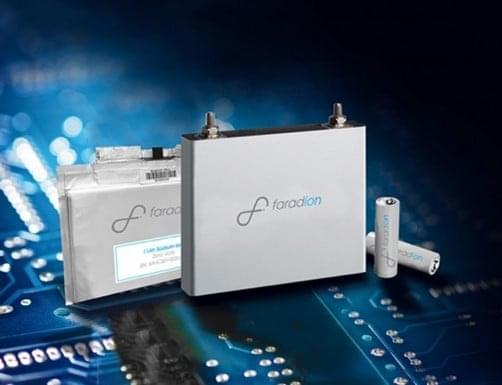Tesla has created a new racing vehicle with a non-fuel engine, one that doesn’t rely on electricity or hydrogen to deliver sustainability and high performance.



Lee esta historia en español aquí.
NASA’s Quesst mission marked a major milestone with the start of tests on the engine that will power the quiet supersonic X-59 experimental aircraft.
These engine-run tests, which began Oct. 30, allow the X-59 team to verify the aircraft’s systems are working together while powered by its own engine. In previous tests, the X-59 used external sources for power. The engine-run tests set the stage for the next phase of the experimental aircraft’s progress toward flight.

Besides Pokémon, there might have been no greater media franchise for a child of the 90s than the Transformers, mysterious robots fighting an intergalactic war but which can inexplicably change into various Earth-based object, like trucks and airplanes. It led to a number of toys which can also change shapes from fighting robots into various ordinary objects as well. And, perhaps in a way of life imitating art, plenty of real-life robots have features one might think were inspired by this franchise like this transforming quadruped robot.
Called the CYOBot, the robot has four articulating arms with a wheel at the end of each. The arms can be placed in a wide array of positions for different operating characteristics, allowing the robot to move in an incredibly diverse way. It’s based on a previous version called the CYOCrawler, using similar articulating arms but with no wheels. The build centers around an ESP32-S3 microcontroller, giving it plenty of compute power for things like machine learning, as well as wireless capabilities for control or access to more computing power.
Both robots are open source and modular as well, allowing a range of people to use and add on to the platform. Another perk here is that most parts are common or 3D printed, making it a fairly low barrier to entry for a platform with so many different configurations and options for expansion and development. If you prefer robots without wheels, though, we’d always recommend looking at Strandbeests for inspiration.


On a recent Friday afternoon, Kashif Hoda was waiting for a train near Harvard Square when a young man asked him for directions.
A month later, he found out just how strange. He had been an unwitting guinea pig in an experiment meant to show just how easy it was to rig artificial intelligence tools to identify someone and retrieve the person’s biographical information — potentially including a phone number and home address — without the person’s realizing it.
A friend texted Mr. Hoda, telling him that he was in a video that was going viral. Mr. Nguyen and a fellow Harvard student, Caine Ardayfio, had built glasses used for identifying strangers in real time, and had demonstrated them on two “real people” at the subway station, including Mr. Hoda, whose name was incorrectly transcribed in the video captions as “Vishit.”


As Candela’s P-12 gracefully flew over the waterways in Stockholm this morning, the event marked the first-ever commercial operation of a hydrofoil electric ferry.
It’s been a long time coming for the P-12, with years of development resulting in the first images of the boat released over two years ago and testing getting started only last year.
Now the first Candela P-12 in commercial operation, named “Nova”, set out this morning from Tappström, quickly reaching its destination at Stockholm City Hall. The 15 km (9 mile) journey took just 30 minutes, or around half the time it normally takes by car or public transit.

Thread#showTweet data-screenname= awiltschko data-tweet=1851327552490733686 dir= auto Well, we actually did it. We digitized scent. A fresh summer plum was the first fruit and scent to be fully digitized and reprinted with no human intervention. It smells great.
Holy moly, I’m still processing the magnitude of what we’ve done. And yet, it feels like as we cross this finish line we are instantly at a new starting line. I’ll have more to share about what’s in store that we’re building on top of this.
A huge HUGE congrats to the entire team across scientific, engineering, operational, and creative disciplines. It takes a village named Osmo to do this.

China has just launched the world’s first autonomous flying taxis, cutting a 1-hour drive down to just 7 minutes!
These eVTOL (electric Vertical Take-Off and Landing) aircraft feature 16 propellers and carry two passengers up to 30–40 km. They offer a thrilling glimpse into the future of urban transport. Each pilot-free flight is safely monitored from a high-tech command center.
What do you think about this? ☝️

Newly emerging Chinese electric truck maker Windrose has claimed an Australian record for a public fast charge of more than 500 kilowatt hours as it topped up its massive batteries on its flagship heavy electric truck on a drive from Melbourne to Sydney.
The Windrose electric truck features a 729 kWh battery, and at a brief glance appears to be a Tesla Semi look-alike, with streamlined features and a driver’s seat placed in the middle of the cabin. The company claims a range of more than 670 kms, fully loaded to 49 tonnes, and hopes to enter commercial production next year.
The truck made an appearance at the All Energy show in Melbourne last week, before being taken around to show its wares to some major Australian logistics companies,. It then made the trip up the Hume Highway to Sydney on Sunday for another series of demonstrations.